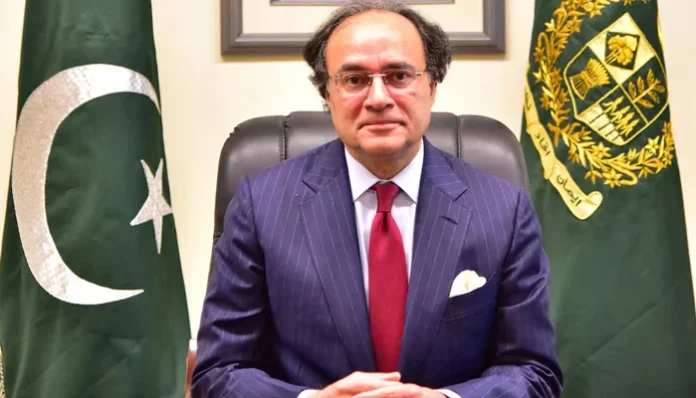Finance Minister Muhammad Aurangzeb revealed to Reuters on Tuesday that Pakistan has finalised the terms for a $1 billion loan agreement with two Middle Eastern banks, carrying an interest rate of six to seven per cent, as the country seeks additional financing.
“With two institutions, we have now gone forward in signing up the term sheet—one bilateral and one for trade (finance),” Aurangzeb stated during an interview on the sidelines of the World Economic Forum annual meeting in Davos.
He noted that the loans are short-term, with a tenure of up to one year.
In August, State Bank of Pakistan Governor Jameel Ahmad informed Reuters that the country aimed to secure up to $4 billion from Middle Eastern commercial banks by the next fiscal year. Aurangzeb further shared Pakistan’s intent to engage with credit rating agencies to work towards a single B rating, with aspirations for an upgrade in the near future.
“Ideally, I would like to think that some action in this direction can take place before our fiscal year is over, which is this June,” he said.
Moody’s had upgraded Pakistan’s rating to ‘Caa2’ in August, citing improvements in macroeconomic conditions, while Fitch raised its rating to CCC+ in July, following a staff-level agreement with the International Monetary Fund (IMF). However, these ratings remain firmly within a sub-investment grade, or “junk,” territory.
Optimism About IMF Review
The government is striving to strengthen its financial position after securing a $7 billion IMF bailout in September 2024, with the first review scheduled for late February.
“We have the first formal review of the extended fund facility (EFF) coming through towards [the] end of February,” Aurangzeb said. “I do think we are in good stead for that review.”
The IMF’s EFF provides financial support to countries grappling with significant medium-term balance of payments challenges caused by structural weaknesses that require time to address.
In October, Aurangzeb confirmed that Pakistan had formally requested around $1 billion in funding from the IMF under its Resilience and Sustainability Trust (RST).
The RST, established in 2022, offers long-term concessional financing for climate-related initiatives, including adaptation measures and transitioning to clean energy. Pakistan, identified as one of the most vulnerable nations to climate change according to the Global Climate Risk Index, plans to advance discussions on RST financing when the IMF mission visits for the first EFF review.
“I’m hoping in the next sort of six to nine months, we can get there with the Fund as well,” Aurangzeb said.
PIA Privatisation Efforts
Cash-strapped Pakistan faced setbacks last year in its attempt to sell a 60% stake in its debt-ridden national carrier, Pakistan International Airlines (PIA). The privatization is part of broader efforts to raise funds and reform state-owned enterprises as outlined in the IMF-backed bailout program.
“In the next five to six months, we should get to a good outcome,” the minister said regarding the PIA privatisation.
Aurangzeb highlighted improved business prospects for the airline after the European Union’s aviation regulator lifted its 4.5-year ban on the carrier. PIA has resumed flights to Europe this month.
Read more: Punjab Introduces New Subject Groups for Matric Students





